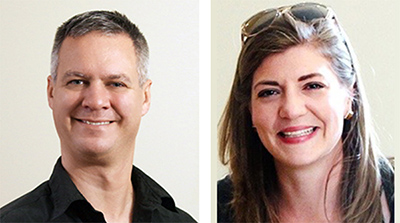New Study Examines STEM Experiences of Hmong Undergraduates across Wisconsin
Adding Hmong students to research team makes study richer
September 6, 2022 | By Karen Rivedal, WCER Communications

WCER researchers Matthew Wolfgram and Bailey Smolarek are principal investigators, as are Stacey Lee, Mai See Thao and Kong Pha.
WCER researchers are partnering with Hmong American faculty and undergraduates across the state to study and find solutions for the underrepresentation in STEM classes and the STEM workforce of Hmong Americans, who make up Wisconsin’s largest Asian American population.
In a key element distinguishing this project approach from more traditional research practices, the survey and interviews will be designed with the help of about a dozen Hmong undergraduates who will be part of the research team at each location. This approach is known as community-based participatory action research, in which researchers team with representatives of the group they’re studying for a more grounded understanding of the topic.
For this project, the study’s principal investigators will mentor the student members of their teams in conducting social science research as the students, in turn, contribute knowledge to the research from their lived experiences.
“They’ll be taking leadership roles to address problems that affect the educational success of their own community in our state,” says WCER researcher Matthew Wolfgram, who is leading the study with co-principal investigators Bailey Smolarek, an associate researcher at WCER; Stacey J. Lee, a UW–Madison School of Education professor and author of two books about the Hmong student high school experience in the United States; Assistant Professor Mai See Thao, director of Hmong Studies at UW-Oshkosh; and Kong P. Pha, an assistant professor and chair of the Critical Hmong Studies Advisory Committee at UW-Eau Claire. Thao and Pha are of Hmong American descent.
“This is a really overlooked community,” Smolarek says. “And this project provides such an amazing opportunity to draw attention to the needs and experiences of Hmong American students.”
For Wolfgram and Smolarek, the new study expands pilot research they did in 2019 with a team of Hmong American student activists that examined the experiences of Hmong American undergraduates at UW–Madison. That work identified several factors, such as advising, gatekeeping mechanisms, and racial climate, that the researchers said could work to essentially redirect or push out Hmong-identified students from competitive STEM majors. The new study will further unpack that issue, while broadening the study’s focus beyond Madison.
“We’re super excited about this,” Smolarek says. “With this expansion, we’ll hopefully be able to make an argument about broader patterns and understand what’s going on with Hmong American students all over the state.”


